
Readers may be familiar with Bishop George Berkeley’s (in)famous claim that objects exist only insofar as they are perceived. From this it follows that reality consists only of minds and their ideas. Ordinary objects such as cups and saucers and tables and chairs are bundles or collections of ideas, and their being consists in their being perceived by a mind. There is no hidden, mind-independent stuff called ‘matter’. When Berkeley (1685-1753) was questioned as to how objects could continue to be when no-one was perceiving them, he claimed they were still in the mind of God. God’s busy mind also explained how the properties of perceived objects would cluster in a coherent way: how, in the absence of matter, perceptions could still be bundled together into enduring things.
It’s no surprise that these ideas were widely rejected as absurd. Perhaps the most famous dismissal was issued by that standard-bearer for ‘stout common sense’, Dr Samuel Johnson of the original English Dictionary. According to his biographer James Boswell, after he and Johnson came out of church, they "stood talking for some time together of Bishop Berkeley's ingenious sophistry to prove the non-existence of matter and that everything in the universe is merely ideal. I shall never forget the alacrity with which Johnson answered, striking his foot against a large stone, till he rebounded from it: 'I refute it thus'."
Bu hikaye Philosophy Now dergisinin December 2024 / January 2025 sayısından alınmıştır.
Start your 7-day Magzter GOLD free trial to access thousands of curated premium stories, and 9,000+ magazines and newspapers.
Already a subscriber ? Giriş Yap
Bu hikaye Philosophy Now dergisinin December 2024 / January 2025 sayısından alınmıştır.
Start your 7-day Magzter GOLD free trial to access thousands of curated premium stories, and 9,000+ magazines and newspapers.
Already a subscriber? Giriş Yap

FALLING DOWN
Thomas R. Morgan considers how personal identity is maintained, and how it is lost.
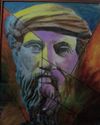
Pythagoras (570-495 BCE)
Daniel Toré looks beyond the mathematician to the philosopher.
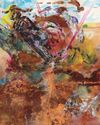
Wordsworth & Darwin
Christine Avery wonders whether poetry can help us to deal with science.

Plants & Philosophy
Caroline Deforche sees similarities between gardening and philosophising.
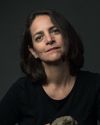
Dr.Gindi sculptor, has a philosophical conversation with Richard Baron about sensation, life, infinity and, you guessed it, sculpture.
Dr. Gindi is one of Switzerland's foremost sculptors, whose work has been exhibited in many countries.

Thomas Aquinas on Extraterrestrial Life
Babatunde Onabajo tells us why Aquinas did not believe in aliens.
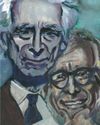
The Fire This Time
Tim Madigan on Ray Bradbury, Bertrand Russell and Fahrenheit 451.
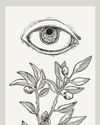
Trust, Truth & Political Conversations
Adrian Brockless wants a recognition of human value in political debate.
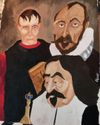
Philosophy & The Crown
Vincent Di Norcia on monarchy and stability.
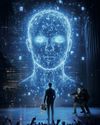
Technologists & Ethicists
Stephen L. Anderson laments inadequate moral insight among tech leaders.
